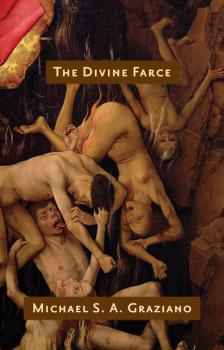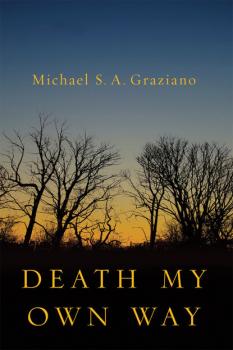LeapLit
Скачать книги из серии LeapLitThe Ghost Trap
“Stephens gives the reader an unvarnished view of the subculture of lobster fishermen in small-town coastal Maine.”—James Acheson, author of The Lobster Gangs of Maine “Stephens has a wonderful clear eye for people, especially Maine people, and The Ghost Trap is populated with dozens from all walks of Maine life.”—Bill Roorbach, author of Temple Stream “A salty, tangy read. . . . Stephens plunges you into the back-breaking, heart-breaking life of one lobsterman.”—Richard Grant, author of Another Green World “Stephens nails harbor life down to the unwritten rules and defense of imaginary territory lines. . . . Peppered with dark humor and brutal honesty, The Ghost Trap gives it to you straight, the way life should be.”—Ryan Post, fourth-generation lobsterman, creator of Mainebuggin.com “Characters and setting that reflect a real, raw piece of Maine. . . . With Anja and Jamie, Stephens introduces us to characters whose stories and situations are heartbreaking. This book reminds us that as complicated as lobster fishing might be, human relationships are always more fraught with difficulty.”—Portland Phoenix The haunting story of a young lobsterman, Jamie Eugley, who is struggling with the grinding responsibilities of a head-injured fiancée and mounting trap wars. Written with sensitivity and rich description, this is a piercingly accurate depiction of life in a small Maine lobstering community. K. Stephens is a Maine arts and entertainment writer who has written about schooners, food and wine, teenagers and the creative economy. Most lobstermen she knows are only too happy to share a crazy story after a beer or three. The Ghost Trap is her debut novel.
Monster: Oil on Canvas
“Marvelously original. . . . Zlotsky has done for conjoined twins what Günter Grass did for midgets in The Tin Drum. . . . A weirdly hilarious Russian fairytale composed with the comedic zeal of Gogol and the rhetorical brilliance of Nabokov.”—Lee Siegel, author of Love in a Dead Language “Pure joy in language. . . . Nabokov’s Pale Fire mated with Finnegan’s Wake.” —Michael Drout, PhD, language scholar Meet Alex and Alex, as compelling a Russian portrait as the two sides of Raskolnikov. He is—or they are—a dark-caped anti-hero, conjoined twins stalking, counterfeiting, fleeing the iron curtain, delightfully innocent, seeking what everyone seeks: love, hope, and redemption.
Billie Girl
"Honestly strange and strangely honest. . . . Remarkably compelling and powerful. Weaver's authenticity of characters, situations, and bygone eras emanates from sheer originality of style. This amazing novel is a stellar achievement—gritty, funny, fresh, and bold. It will make your eyes bug out and your pulse race. And how it shines, shines with humanity!"—Sena Jeter Naslund, author of Ahab's Wife"Southern Gothic to the core, suffused with a humor as dark as the bottom of a Georgia well. . . .Weaver has stepped forward for the benefit of anyone who reads American fiction."—Kirby Gann, author of Our Napoleon in Rags"Savagely funny, wildly ambitious. . . . A bawdy, brutal, and beautiful meditation on identity, sex, and mercy. Weaver has a fiercely distinctive vision."—K.L. Cook, author of The Girl from Charnelle"Darkly comic, deeply poignant. . . . Billie Girl is the adventurer through a long, strange trip that is life itself."—Roy Hoffman, author of Chicken Dreaming CornAbandoned as in infant because of her incessant crying, Billie Girl is raised by two women who are brothers. Her life, a gender-bending puzzle filled with dark humor, is a series of encounters with strangers who struggle along with what they are given: a bigamist husband, a long-lost daughter named after a car, a lesbian preacher's wife, a platonic second husband who loved her adoptive father. Twin themes of sexuality and euthanasia run throughout. In a journey from hard-dirt Georgia farm to end-of-life nursing home, Billie Girl comes to understand the mercy of killing.
The Facility
Praise for Berlin:"Mirolla . . . is a teller of tales that only the tautest of prose could relate with cohesion and beauty. This book will thrill the mind."—CrimeSpree"Intriguing, passionate, sad, hilarious. Mirolla is a master storyteller."—Toronto Sun"Mirolla's book excels."—Rain TaxiMussolini clones that won't stay dead. The power to re-create others—forever. Memory and identity are no longer unique. Trapped inside the cloning facility at a time when humans are undergoing their final death rattle on a prion-infected earth, Fausto struggles to re-create the world he once knew. Or did he ever know it?
And Yet They Were Happy
"Brilliant miniatures. . . . Like the fables of Calvino, Millhauser, or W.S. Merwin. . . . Beautifully blends short story and prose poem. . . . Mermaids, subways, floods, cucumbers, magicians. . . .The book is a gallery of marvels. Phillips guides us through the 'Hall of Nostalgia For Things We Have Never Seen,' 'the factory where the virgins are made,' and 'the Anne Frank School for Expectant Mothers.' A depressed Noah admits he 'didn't get them all,' a wife guesses which of two identical men is her husband, a regime orders citizens to grow raspberries on windowsills. [Helen Phillips'] quietly elegant sentences are as clear as spring water, haunting as our own childhood memories."—Michael Dirda "A deeply interesting mind is at work in these wry, lyrical stories. Phillips exploits the duality of our nature to create a timeless and most engaging collection."—Amy Hempel "Haunted and lyrical and edible all at once."—Rivka Galchen A young couple sets out to build a life together in an unstable world haunted by monsters, plagued by disasters, full of longing—but also one of transformation, wonder, and delight, peopled by the likes of Noah, Bob Dylan, the Virgin Mary, and Anne Frank. Hovering between reality and fantasy, whimsy and darkness, these linked fables describe a universe both surreal and familiar. Helen Phillips received a 2009 Rona Jaffe Writer's Award, 2009 Meridian Editors' Prize, and 2008 Italo Calvino Fabulist Fiction Prize. Her work has appeared in many literary journals and two anthologies. She holds degrees from Yale University and Brooklyn College, and teaches creative writing at Brooklyn College.
The Divine Farce
“A Dante/Beckett reduction of human struggle to its lowest common denominator.”—Michael Mirolla, author of The Formal Logic of Emotion and Berlin “One of the most original and thought-provoking stories I have ever read…true literary art…Not a word is wasted in this masterpiece. Yes, I call it that. I have read many classics, and I can tell you that The Divine Farce should be counted among them; the finest in American literature.”—Geekscribe Three strangers are condemned to live together in darkness, crushed together in a concrete stall so small that they can never sit down. Liquid food drips down from above. Waste drains through a grid on the floor. So begins one of the strangest, most surreal comments on the human experience, on love and hatred and the human ability to find good in any situation, no matter how difficult. Michael S. A. Graziano delights in the macabre and surreal, yet it is his optimism that lifts this little novel. Like The Love Song of Monkey, this book is deeply thought provoking, horrifying, and funny. Praise for The Love Song of Monkey: “Imaginative, intelligent narrative. Twin ideas of forgiveness and mercy twist through this strange, moving, patiently wrought novel.”—Publishers Weekly “Fabulously imagined, seriously considered, and very funny. A kind of fairytale antithesis on the meaning of existence. . . . Fantastic.”—Spirituality and Health Books “Strange but wonderful . . . like nothing I’ve read before. A very short book, but the scope is epic in detail. . . . I enjoyed the heck out of this book.”—Geekscribe “Should be required reading in the writing grad schools. . . . There’s nary a word wasted. What’s left is comedy, retrospection, betrayal, tenderness, meditations on loneliness, a love story that survives all attempts to suppress it . . . not bad within 149 pages.”—Barnstable Patriot Michael S. A. Graziano, Princeton University neuroscientist, is the author of the novella Hiding Places (New England Review, 1997), the novel The Love Song of Monkey (Leapfrog Press, 2008), and The Intelligent Movement Machine (Oxford University Press, 2008).
In the Lap of the Gods
Set against a backdrop of real events in modern China. The displacement of 1.4 million people from the building of the Three Gorges dam is a Katrina-magnitude story that resonates with sympathetic Americans, human rights activists, sinophiles, journalists and bloggers keeping their eyes on China.A contemporary story in which the past is erased in the name of progress. Appeals to history buffs, older readers, travelers, and those concerned about the environment.The story’s premise of a widower adopting a baby girl opens doors to an engaged community of parents who adopt children from overseas.the abandonment of the baby by her mother, whose husband was not the child's father, is another human-right issue facing women and children in many countriesA window into the dark side of modern China; a striking portrayal of its modern cities in contrast with the ancient beauty and mythology of the Yangtze River towns.A story of love and loss in which moral choices faced by the characters—adopting vs. letting go of children, marriage fidelity, Christian beliefs—make this book an appealing choice for reading clubs.
Death My Own Way
For fans of Gibran and CavinoThe Love Song of Monkey (2008) and The Divine Farce (2009) have created a small but very dedicated following of readers, including online and weekly print reviewers, who are eagerly awaiting this novel. A philosophical take on life and the end of lifeLike the last two novellas, should appeal to GeekScribe, BookFetish, Spirituality & Health Books, etc.
How to Stop Loving Someone
Winner of the 2010 Leapfrog Fiction Contest. «Excellent and lively. A sharp wit, the apt metaphor, the turn of phrase that pleases and surprises.»—Marge Piercy, contest judge «Bright, brassy, spunky, intelligent. Ingenious writing. . . . Quirky and filled with metaphoric twists that often startle.»—Michael Mirolla, contest judge «Smart, funny, biting, and, above all, touching. A collection to savor over and over.»—Michael White, author of Beautiful Assassin Praise for Joan Connor's previous collections: «Brilliantly quirky wit and wordplay.»—Syndey Lea, author of A Little Wilderness «A deeply talented writer.»—Alyce Miller, author of Water «Candor, bracing wit, and skewering insight that could kill if she let it.»—Rosellen Brown, author of Half a Heart Joan Connor's collection investigates love and loss, sex, family, and the ways they echo back through memory, sometimes to comfort and sometimes to bite. Some comic, some dark, the stories range from lyrical to laugh-out-loud funny. The title story is a mock self-help manual on how to fall out of love. «Men in Brown» is a rollicking account of a woman infatuated with her UPS man. «Aground» is a dark account of male lust and violence on a lonely island in Maine. Joan Connor is a professor at Ohio University and at Fairfield University's low residency MFA program. She received the AWP award for her collection History Lessons, and the River Teeth Literary Nonfiction Prize for The World Before Mirrors. Her two earlier collections are We Who Live Apart and Here on Old Route 7.








